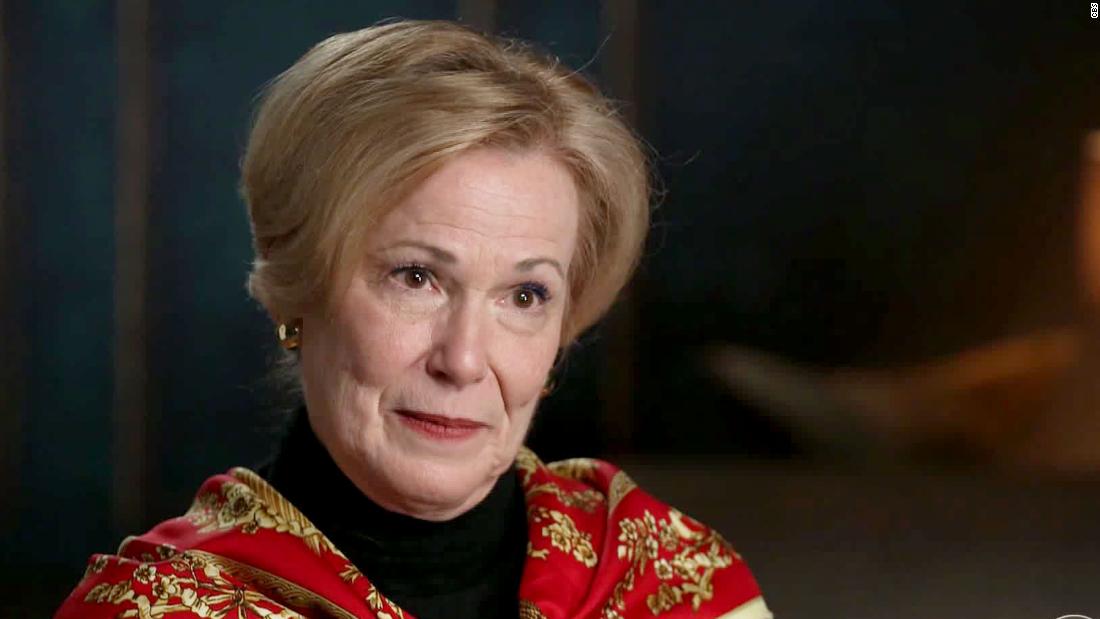
Megan Ranney, MD, MPH, is an associate professor of emergency medicine at Brown University, and co-founder of Get Us PPE. The opinions expressed in this commentary are her own. View more opinion at CNN.
Watch, "COVID WAR: The Pandemic Doctors Speak Out," at 9 p.m. Sunday, March 28, only on CNN.
How times have changed. Over the last year Fauci has received widespread and well-deserved acclaim, while Birx's previously sterling reputation has been tarnished -- perhaps irrevocably.
As a clinician-scientist (and public health professional), I have criticized Birx. But I also have to wonder: What went wrong?
Before Covid-19, Birx was known as a consummate scientist and public health professional. In her leadership of international HIV/AIDS programs, she was praised for her ability to cross the partisan divide to mobilize resources for good science. We all took a sigh of relief when she was named as the White House Coronavirus Response Coordinator in late February 2020, expecting her to continue her role as a voice of reason during the pandemic.
Accepting a job working for Donald Trump was her first and worst mistake.
She, like many of us, had no idea how badly his administration would distort, ignore and deny science and the truth during the pandemic. Although she said she took the job out of a sense of obligation ("That's what a civil servant is supposed to do," she said a year later), Birx became inextricably tied to the harmful decisions of her negligent, disastrously ignorant boss.
In a new CNN documentary airing Sunday, Birx revealed what she believed to be the extent of the Trump administration's failures when she told Dr. Sanjay Gupta that she thought the vast majority of the US' Covid-19 deaths could have been prevented. "There were about a hundred thousand deaths that came from that original surge. All of the rest of them, in my mind, could have been mitigated or decreased substantially," she said.
Fauci's position at the National Institutes of Health allowed him some degree of political independence from Trump. Birx did not have that luxury. The first lesson is: Know whom you are agreeing to work for.
Birx's next error was allowing the regime's lies to go unchecked. It's true that she said many things right, from her first day to her last. And as a White House team member, she would have found it hard to publicly contradict her boss. And it's understandable that she thought she would do more good from inside the administration instead of as an outside observer. She said this herself in January. But still -- she could have drawn the lines of honesty and integrity much earlier.
It wasn't until late summer 2020 that she went out on the road to personally meet with, and guide, public health professionals. This was, frankly, too little, too late, and with too little power or publicity behind it. Not until October did we learn that she had refused to be in the same room as Trump's Covid adviser, the neuroradiologist Dr. Scott Atlas, who was one of the most harmful people in our country's federal coronavirus response.
For months as the calamity worsened, she let Trump's lies go unchecked on the public stage. The harm was irrevocable.
The second lesson: Don't hesitate to blow the whistle. Don't keep quiet when something is really wrong. The AIDS activists were right decades ago: Silence = death.
Birx's mistakes were complicated by something that wasn't her fault at all, and something I know all too well: She was a woman in a male-centered world. We know that the Trump White House had a reputation for being particularly toxic for women. As a female physician-scientist myself, I am familiar with implicit and explicit misogyny and the big and small ways in which it changes one's decisions.
I know women are more likely to be criticized, less likely to be given opportunities for advancement, and less likely to be promoted to a senior leadership position, compared to men. I know that we have to work harder to be seen as equivalent.
Birx has confronted these trends throughout her life, and doubtless developed a thick skin -- and a tolerance for small insults -- in order to get to this place. But that accommodation may also have been part of her downfall; like many of us she might have gotten so used to accepting the small slights that she may not have seen the bigger warning signs until she was in too deep.
So I take her story as a warning, particularly for women and minorities: Sometimes our methods of survival can turn into weaknesses.
At the end of the day, I am sad for Birx. She was an amazing leader for most of her career. And she seems to have done her best to make up for the administration's malfeasance. I have no doubt that she is a good person. But her months of public silence caused us all harm.
So my final lesson and biggest lesson from this case study: Our integrity is our biggest asset. Don't give it up easily. And make sure you surround yourself with people who will serve as an early warning bell when your reputation is in danger of being broken.
March 28, 2021 at 09:25PM
https://www.cnn.com/2021/03/28/opinions/hard-lesson-dr-deborah-birx-ranney/index.html
The hard lesson of Dr. Deborah Birx - CNN
https://news.google.com/search?q=hard&hl=en-US&gl=US&ceid=US:en
No comments:
Post a Comment